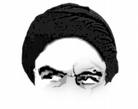Tehran, Iran, is not Birmingham, Alabama

Riots erupt. The police respond. Riot gear is employed with relish. The authorities are determined to quell the violence – determined to stop the demonstrators. Unwittingly – it is the authority of government that is the source of the violence. But Tehran, Iran, is not Birmingham, Alabama.
Limited access to actual events on the ground in Tehran make analysis difficult – but we can say with some certainty that there is no central government willing to pull in the reigns. When protest erupted in America in the 1960’s the police responded much as we are seeing in modern day Tehran. Here is a youtube video from the BBC:
What are we to make of this? We must remember that this is not America. Errant authority in America happens – but not regularly and not successfully. Eventually the greater powers of reason prevail and errant authority is brought down. Reason itself is measured by some fundamental set of values, some vision of what we are trying to achieve.
Civil Disobedience is a part, perhaps even a driver, of American evolution. From Henry David Thoreau to Susan B. Anthony to Justice Abe Fortes to Martin Luther King, civil disobedience to injustice has been a means of challenging the wrongs of legislative and judicial activism. But remember, this is America – our Founders established protection for those who disagree. Iran has no such protection.
There is irony in Thoreau’s concept of “The best government is the government which governs not at all.” The very nature of civil disobedience calls for government action – either in support or opposition – but act nevertheless.
When Gandhi employed civil disobedience in India he was challenging the global reach of the British Empire. India achieved independence in 1948 as a result of Gandhi’s action. But Britain is not Iran. The civilized world recognizes individual rights – some might even say individual rights is a mark of modern civilization.
 Iran is governed by theocratic rule. The problem with a theocracy is in the definition and interpretation of law. Spiritual law is precise in practice – but has little accuracy. Accuracy establishes a target before the arrow is shot. Precision suggests we can shoot the arrow in the same place every time – whether it is in the right place or not. Spirituality, by its very nature, requires mystic interpretation bordering on superstition. One man’s achievement is another man’s sin. Thus accuracy is a moving target in theocratic rule.
Iran is governed by theocratic rule. The problem with a theocracy is in the definition and interpretation of law. Spiritual law is precise in practice – but has little accuracy. Accuracy establishes a target before the arrow is shot. Precision suggests we can shoot the arrow in the same place every time – whether it is in the right place or not. Spirituality, by its very nature, requires mystic interpretation bordering on superstition. One man’s achievement is another man’s sin. Thus accuracy is a moving target in theocratic rule.
The very greatness of America is in the separation of church and state. The State has law which follows precise and accurate rules, has precise and accurate interpretations, and is tempered by a worthy judicial system measuring action against precise and accurate law. We recognize precision in law is difficult – and should always be measured against accuracy.
Accuracy, by definition, is in hitting a specific mark – or target. The target of the people protesting in Iran is not the same target as those who rule in Iran. This separates Iran from the civil disobedience witnessed in America and Gandhi’s India. The United States and Britain each seek justice – Iranian rule seeks only dominance. Thus the government reaction to civil disobedience is dramatically different.
The variable employed by Martin Luther King is in play today in Iran. That variable is in mass communications. The Civil Rights Protests of the 1960’s were televised across the nation – and errant authority was caught in the head lights of a fast moving car. Mass communications will allow the world to watch, to observe atrocities by authority figures in Iran.
Will this be enough to bring justice to a stifled and frustrated Iranian populace?
Accuracy and Precision: